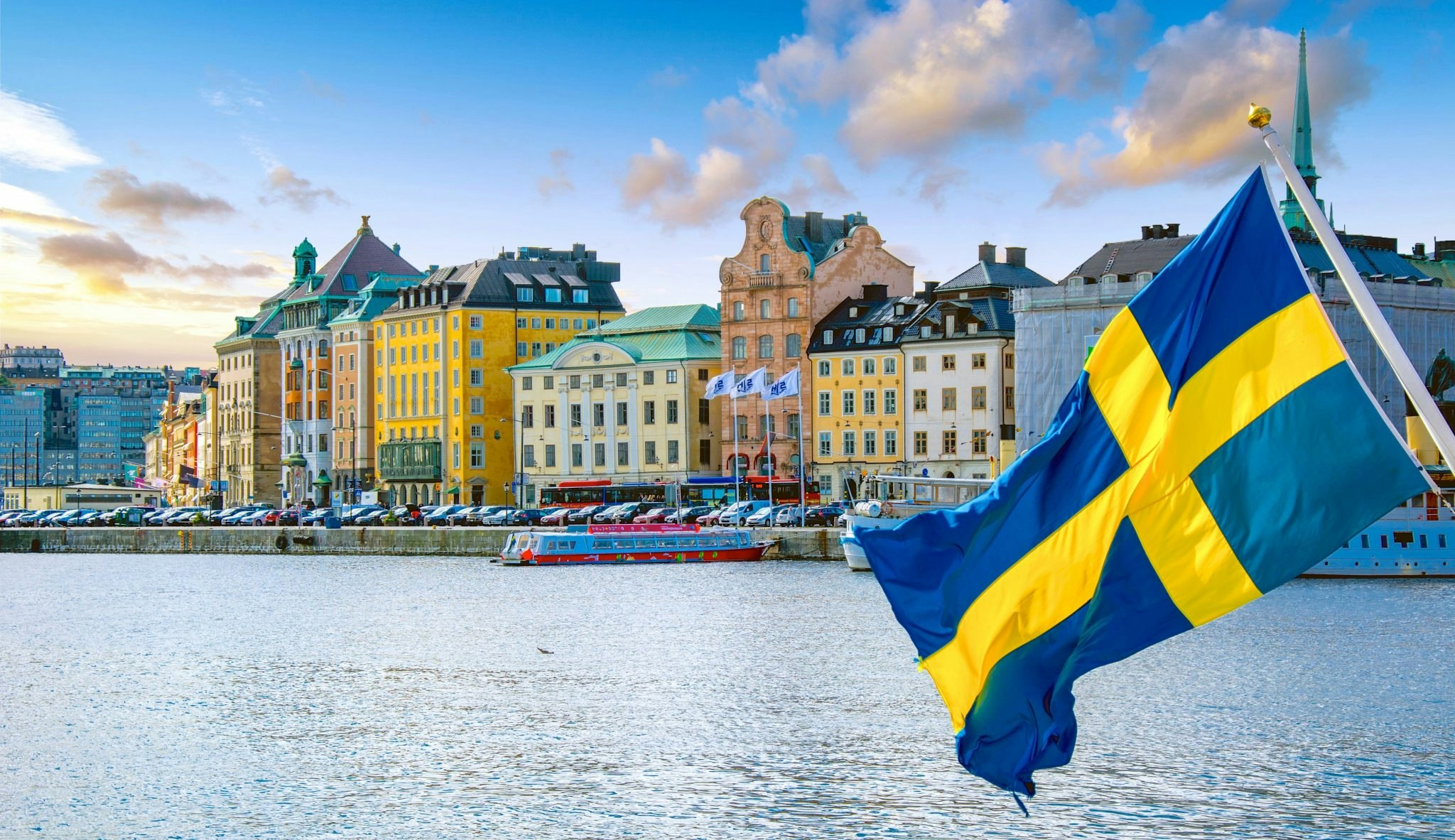Sweden is among the countries betting big on the metaverse. According to Dealroom, following the UK and France, Sweden has pumped the most money into the tech out of European countries over the past decade.
But what the metaverse actually is — or what it might become — is still very much up in the air. Nevertheless a growing cohort of companies are betting on the tech to transform their business operations and keep them at the forefront of innovation.
From H&M’s promotion of sustainability in the metaverse to PostNord training staff virtually and Mercobank mulling 3D banking, Swedes across every sector are dipping their toes in. Sifted chatted to the experts to get a better idea of the catalysts, possibilities and hurdles to overcome.
A match made in the multiverse?
For Katarina Brud, director of MobilityXlab, a mobility and connectivity collaboration hub, Sweden’s thirst for the metaverse is natural in the pursuit of innovation.
It’s in Sweden’s nature to be innovative and collaborative. As a result of that, we’re early adopters of new tech and innovations
“It’s in Sweden’s nature to be innovative and collaborative,” she says. “As a result of that, we’re early adopters of new tech and innovations.”
This is echoed by Benoit Gendron, CEO and cofounder of LatenceTech, a 5G monitoring platform. Swedish startups, Gendron says, are “born global” — and knowing the market in their home country is limited, their thinking is “global from the get-go”.
Daniel Wilén, managing director at Arctic Game, Northern Sweden's game industry cluster, adds that Sweden has specific experience.
“We have a tremendous technical background but also a creative background, which is what the metaverse is a combination of,” he says. “And Sweden has players in every part of the ecosystem”.
Is gaming first?
For Jasmeet Sethi, head of Ericsson’s ConsumerLab, the metaverse’s first frontier is obvious: gaming.
“There’s no doubt that gaming as a sector is the first reference point and early version of the metaverse,” he tells Sifted. “From a tech point of view that sector is a little bit ahead, and that’s where Sweden has had a lot of experience over the last decade.”
“One in four people in the world have played games manufactured or developed in Sweden,” Sethi continues. “You can already see a lot of gaming studios going into metaverse development, and lots of talent being recruited from gaming companies.”
Gaming might be top of the list, but augmented reality has the potential to disrupt and transform many sectors. Retail, social communication, advertising, and even city planning are “ripe for adoption”, says Sethi.
One in four people in the world have played games manufactured or developed in Sweden
For British-Swedish pharmaceutical company, AstraZeneca, it’s a logical step in the move towards digitisation within healthcare. BioVentureHub was launched by the company in 2014 to advance growth and innovation in lifesciences, integrating startups, academic institutions and corporations across "drugs, device, diagnostic and digital".
“We very much believe in sector convergence,” says Ulrika Edvardsson, BioVentureHub’s science director. “This is critical for future innovations, so we have to integrate healthcare into the digital world much more than we do today.”
Part of that is embracing the metaverse. In the short term that might look like clinical settings. Virtual reality software companies operating in pharma R&D have already launched a virtual world where scientists from all over the globe can design a drug at the same time.
AstraZeneca has also been setting up "digital twins": virtual environments for testing different technologies in development. Over the longer term, Per Hillertz, business relationship manager at AstraZeneca, thinks it will become an important way of exchanging information.
“How do you quickly exchange information and explain it? I can send you data today but you won’t know how to use it,” he says. “We’re not there yet but I believe the metaverse will really help.”
The challenges ahead
But there’s still a way to go.
First, there’s the device. Attempted iterations have stuttered (Google Glass) or remain bulky (VR headsets).
“The level of immersion and vision that has been set forward for the metaverse will need a new user interface and new device, and that’s been challenging to say the least,” says Sethi.
“It’s tough to build a device that you can use on a day-to-day basis without any friction,” he continues. “You’d need user interfaces that are voice-governed, AI-enabled and frictionless, but that is not happening today: 15 minutes in virtual reality and you will feel sick.”
The sheer amount of data that must be stored also requires a higher network capacity and greater responsiveness (latency). “To do anything on the metaverse, you need super good connectivity,” says Gedron. That’s where 5G comes in. The metaverse will need 15 milliseconds of latency to make it seamless, he notes. Most networks currently have 40-50 milliseconds.
What’s happening in the market right now is everyone is positioning their version of the metaverse. There won’t be one but a collection
And consumer appetite is a crucial ingredient. Ericsson’s ConsumerLab has been surveying consumers to understand expectations of how the metaverse should be shaped.
“What’s happening in the market right now is everyone is positioning their version of the metaverse,” Sethi says. “There won’t be one but a collection. We need to understand what convergence of technologies need to come together to best serve consumer expectations and needs.”
Many tech-facing companies in Sweden are doing just that, from Mobilityxlab to Arctic Game. Wilén, of Arctic Game, is currently forming a trade union for XR (extended reality) to gather different parts of the ecosystem in Sweden under one umbrella.
“One of my challenges is to create a bridge between the gaming industry and this one to make XR and the metaverse happen in Sweden,” he says.
The future of the metaverse
All the experts interviewed are evangelical about the metaverse’s potential to transform — and its continued importance. Brud points to the fact many kids are already there.
“The outcomes may not be just as predicted, but we [Sweden] will be there, up to date, able to be part of the solution,” she says. “So if it’s pivoting, we will be part of that pivoting because we’re early engagers.”
Given the network and infrastructure evolution required, Sethi estimates we’re still ten years out. During the decade, we’ll see many different iterations as the foundational backbone is built.
And on that journey, some will triumph and others will crash. “It is the future, but there have been and will continue to be bad investments in the sector because that’s what it is to be early,” says Wilén. “You can’t just stamp a name on something and expect it to be valuable.”
Meet Team Sweden on board the ship “Götheborg of Sweden” berthed in Barcelona during MWC2023 to explore more.



